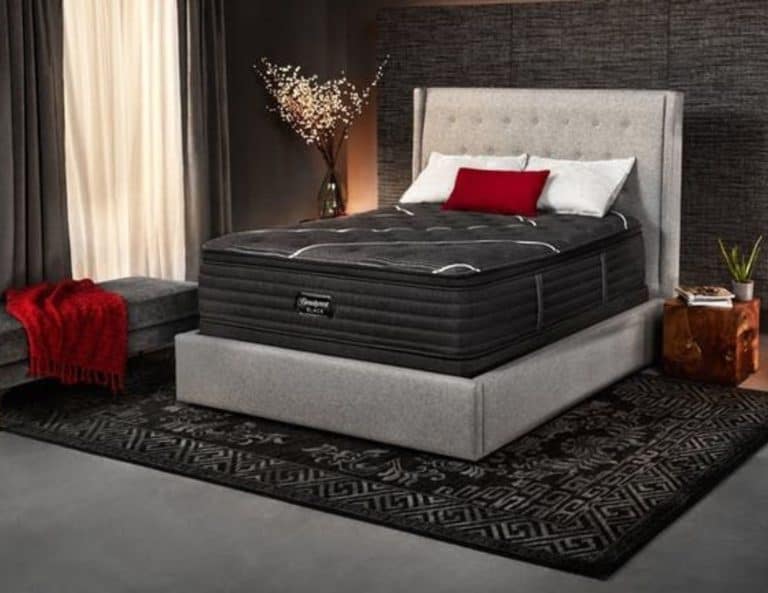Looking to book a hotel room but unsure about what double occupancy really means?
If you’re short on time, here’s a quick answer to your question: Double occupancy refers to the maximum number of guests allowed in a hotel room, typically two adults.
In this article, we’ll delve into the details of double occupancy, including its definition, implications, and frequently asked questions. Whether you’re planning a romantic getaway, a business trip, or a family vacation, understanding double occupancy is essential for a smooth hotel experience.
So, let’s get started and explore everything you need to know about double occupancy for hotel rooms.
What is Double Occupancy?
When it comes to booking hotel rooms, you may have come across the term “double occupancy.” But what does it actually mean? Let’s dive into the definition and explore the common policies and limitations associated with double occupancy.
Defining Double Occupancy
Double occupancy refers to the practice of accommodating two guests in a hotel room designed for two people. This means that the room has enough space and amenities to comfortably accommodate two individuals. It is a popular option for couples, friends, or family members who want to share a room and split the cost.
Most hotel rooms are designed with double occupancy in mind and come equipped with two beds or a larger bed, such as a queen or king size, to accommodate two guests.
Common Policies and Limitations
Hotels have specific policies and limitations when it comes to double occupancy. These policies vary from one hotel to another, so it’s essential to familiarize yourself with them before making a reservation.
- Maximum Occupancy: Hotels usually have a maximum occupancy limit for each room type. This limit is set for safety reasons and to ensure that guests have a comfortable stay. Exceeding the maximum occupancy may result in additional charges or even refusal of service.
- Extra Charges for Additional Guests: While double occupancy typically includes two guests, some hotels may charge extra for each additional guest. This is especially true for hotels that offer amenities or services that are limited to a certain number of guests.
- ID Requirement: Hotels often require guests to provide identification for each person staying in the room. This helps ensure the safety and security of all guests.
Exceptions and Additional Fees
In certain cases, hotels may allow additional guests in a double occupancy room, but this is usually subject to specific conditions and additional fees. For example, some hotels may provide rollaway beds or sofa beds for an extra guest, but there may be an additional charge for this service.
It’s important to check with the hotel directly or through their website to understand the specific policies and fees associated with double occupancy and any exceptions that may apply.
For more information on double occupancy policies and specific hotel guidelines, you can visit trusted travel websites such as Booking.com or Expedia.com.
Benefits of Double Occupancy
Cost-Effectiveness
One of the greatest benefits of double occupancy in hotel rooms is the cost-effectiveness it offers. By sharing a room with another person, you can split the cost of the room, making it more affordable for both parties. This can be particularly beneficial for budget travelers or those looking to save money on accommodation expenses. According to a study conducted by Trivago, double occupancy can save travelers up to 50% on hotel costs compared to booking separate rooms.
Sharing the Experience
Double occupancy also provides the opportunity to share the experience of staying in a hotel with someone else. Whether it’s a romantic getaway with your partner or a fun trip with a friend, sharing a room allows you to create lasting memories together. You can enjoy the amenities and services offered by the hotel, such as room service, spa facilities, or even just relaxing by the pool. Plus, having someone to share the experience with can make it even more enjoyable and memorable.
Convenience and Comfort
Another advantage of double occupancy is the convenience and comfort it provides. When you have a travel companion, you can divide tasks and responsibilities, making the overall experience more convenient. For example, one person can handle check-in while the other takes care of unpacking. Additionally, sharing a room allows you to have someone to talk to and share moments with, providing a sense of companionship and reducing feelings of loneliness or homesickness.
Furthermore, many hotels offer rooms specifically designed for double occupancy, featuring larger beds, additional seating areas, and more space for personal belongings. This ensures that both occupants have a comfortable and enjoyable stay.
Understanding Room Types
When it comes to booking a hotel room, understanding the different types of accommodations available is essential. This knowledge allows you to make an informed decision that best suits your needs and preferences. From double occupancy rooms to suites and family rooms, each option offers unique features and amenities. Additionally, some hotels also offer connecting rooms, which can be convenient for larger groups or families traveling together. Let’s explore these room types in more detail.
Double Occupancy Rooms
Double occupancy rooms are designed to accommodate two guests. These rooms typically feature a comfortable queen or king-sized bed and are perfect for couples, friends, or solo travelers who prefer a bit more space. They often come equipped with essential amenities such as a private bathroom, a desk, a TV, and Wi-Fi access. Some hotels may also provide additional amenities like a mini-fridge or a coffee maker. Double occupancy rooms are a popular choice for those looking for a cozy and intimate stay.
Suites and Family Rooms
If you’re traveling with your family or prefer more spacious accommodations, suites and family rooms are great options. These rooms are larger and often consist of multiple sleeping areas, a separate living room, and a kitchenette or full kitchen. Suites and family rooms provide added privacy and convenience, allowing everyone to have their own space while still being together. These room types are ideal for extended stays or when traveling with children or a larger group.
Connecting Rooms
Connecting rooms are a popular choice for families or groups of friends traveling together. These rooms are designed to have a connecting door between them, allowing easy access between the two rooms while still maintaining privacy. Connecting rooms provide the convenience of staying close to your travel companions while having separate sleeping quarters. They offer the best of both worlds, enabling you to enjoy quality time together while still having your own space when needed.
When booking a hotel room, it’s essential to consider your specific needs and preferences. Understanding the different room types available, such as double occupancy rooms, suites, family rooms, and connecting rooms, allows you to choose the option that best suits your requirements. By doing so, you can ensure a comfortable and enjoyable stay during your travels.
Booking for Double Occupancy
Checking Room Capacity
When booking a hotel room for double occupancy, it is crucial to check the room capacity beforehand. Not all hotel rooms are designed to accommodate two people comfortably. To avoid any inconvenience, make sure to inquire about the room’s capacity when making your reservation. Most hotels clearly state the maximum occupancy for each room type on their websites or during the booking process.
It’s important to consider the room size, bed configuration, and available amenities when assessing the suitability of a room for double occupancy. Some hotels offer larger rooms or suites specifically designed for multiple guests, which can provide a more spacious and comfortable stay.
Informing the Hotel
Once you have found a suitable room for double occupancy, it is essential to inform the hotel about your intention to have two guests staying in the room. This will allow the hotel to prepare the room accordingly, ensuring that there are enough towels, toiletries, and other amenities for both guests.
Informing the hotel in advance also ensures that they can allocate a room with a suitable bed configuration. Whether you prefer a room with two separate beds or a larger bed for two, communicating your preference to the hotel will help them meet your needs and ensure a comfortable stay.
Remember, hotels appreciate it when guests provide them with accurate information, as it allows them to provide better service and accommodate any special requests you may have.
Additional Requests
When booking a hotel room for double occupancy, it’s an excellent opportunity to make any additional requests to enhance your stay. Whether it’s requesting a room with a view, a higher floor, or specific amenities like a mini-fridge or a coffee maker, don’t hesitate to communicate your preferences to the hotel.
Some hotels may have additional charges for certain requests or offer special packages for double occupancy. It’s always worth checking if there are any promotions or upgrades available to make your stay even more enjoyable.
Remember, clear communication and early planning can significantly improve your hotel experience. Take the time to check the room capacity, inform the hotel about double occupancy, and make any additional requests that can enhance your stay. By doing so, you’ll ensure a smooth and comfortable experience during your trip.
Frequently Asked Questions
Can I have more than two guests in a double occupancy room?
Typically, a double occupancy room is designed to accommodate two guests. However, some hotels may allow additional guests for an extra charge. It’s best to check with the hotel directly to see if they can accommodate more than two guests in a double occupancy room. Keep in mind that exceeding the maximum occupancy limit may result in discomfort and inconvenience for all guests involved. To ensure a comfortable stay, it’s always recommended to book a room that suits the number of guests you have.
Are children included in the double occupancy count?
Yes, children are usually included in the double occupancy count. Hotels generally have specific policies regarding the maximum number of guests allowed in each room, regardless of their age. However, some hotels may offer special rates or additional amenities for families traveling with children. It’s important to inquire about the hotel’s policy on children and any additional charges or requirements that may apply.
What if I need an extra bed for my stay?
If you require an extra bed for your stay, it’s advisable to contact the hotel in advance. Many hotels offer rollaway beds or sofa beds as an option for additional sleeping arrangements. However, it’s important to note that not all hotels may have this option available, and there may be an additional charge for the extra bed. It’s always a good idea to confirm the availability and cost of an extra bed when making your reservation.
Conclusion
Double occupancy is a common term used in the hotel industry to specify the maximum number of guests allowed in a room, typically two adults.
Understanding double occupancy is crucial when booking a hotel room to ensure compliance with policies, avoid additional fees, and have a comfortable stay.
We’ve covered the definition of double occupancy, its benefits, room types, booking considerations, and answered some frequently asked questions.
Now that you’re equipped with the knowledge of double occupancy, you can confidently choose the right hotel room for your needs and enjoy a hassle-free stay.
So, go ahead and book your next hotel room, knowing exactly what double occupancy entails!






